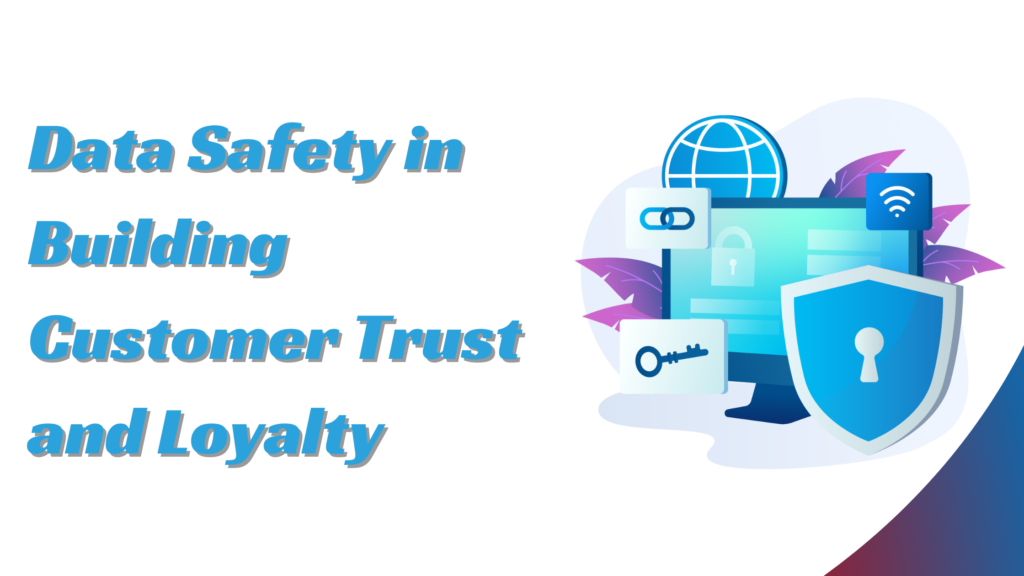- 1.1 Understanding Data Safety
- 1.2 Building Customer Trust Through Data Safety
- 1.3 Enhancing Customer Loyalty with Data Safety
- 1.4 Best Practices for Ensuring Data Safety
- 1.5 The Role of Data Recovery in Data Safety
- 1.6 Legal and Ethical Considerations
It has become a paramount concern for businesses and consumers in today’s digital world. Take, for example, the recent data breach incident at a major retail company. It compromised millions of customers and significantly damaged the company. This incident underscores the importance of data safety in building and maintaining customer trust and loyalty. In this blog post, we will explore how data safety contributes to customer trust, enhances loyalty, and why data recovery is a vital aspect of data protection.
Importance of Data Safety in Building Customer Trust and Loyalty
Understanding Data Safety
Data safety refers to the measures and protocols to protect sensitive information from unauthorized access, breaches, and other security threats. It encompasses everything from encryption and secure storage to regular security audits. In an era when data is the new oil, ensuring its safety is not just a technical requirement but a business imperative.
A single breach can lead to significant financial losses, legal repercussions, and a loss of customer trust that can be hard to regain. According to a recent study, 60% of small businesses close within six months of experiencing a cyber attack.
Building Customer Trust Through Data Safety
Transparency is key in fostering customer trust. Customers feel more secure when businesses are open about data protection policies and practices. They know what data is collected, how it’s used, and how it’s printed. Implementing robust security measures is another crucial aspect.
This includes using advanced encryption methods, multi-factor authentication, and regularly updating software to protect against vulnerabilities. These steps reassure customers that their data is in safe hands. Additionally, adhering to industry standards and obtaining certifications like ISO/IEC 27001 can enhance trust. These certifications show that a business follows best practices in data safety, adding an extra layer of credibility.
Enhancing Customer Loyalty with Data Safety
When customers know their data is safe, their confidence in the business grows. This increased confidence often translates into repeat business and long-term customer loyalty. Data safety can also serve as a competitive advantage.
Companies prioritizing data protection stand out in a market where consumers are increasingly concerned about privacy. Moreover, a secure data environment improves the overall customer experience. Customers are more likely to engage with a business when they feel their personal information is protected, leading to higher satisfaction and loyalty.
Best Practices for Ensuring Data Safety
Encrypting data ensures that it cannot be read without the encryption key, even if it is intercepted. This is a fundamental practice for safeguarding sensitive information. Conducting regular security audits helps identify and fix vulnerabilities before they can be exploited. It’s a proactive approach to maintaining data safety, and educating employees on data safety best practices is crucial.
Since human error is often the weakest link in security, regular training sessions can help mitigate this risk. Ensuring that third-party vendors comply with data safety standards is also essential. This involves thorough vetting and regular monitoring of their data protection practices.
The Role of Data Recovery in Data Safety
Data recovery involves restoring lost, corrupted, or compromised data to its original state. It is a critical component of a comprehensive data safety strategy. No matter how robust a data protection strategy is, the possibility of data loss due to unforeseen events such as hardware failure, cyber-attacks, or natural disasters always exists. Data recovery ensures business continuity by restoring data quickly and efficiently. Implementing effective data recovery strategies includes regular backups, reliable recovery software, and a clear recovery plan.
Incorporating Corodata backup tape rotation can further enhance these strategies. This service ensures that backup tapes are regularly rotated and stored offsite, protecting against data loss from local disasters.
Businesses should test their recovery processes periodically to ensure they work as expected. Consider a healthcare provider that experienced a ransomware attack. Their robust data recovery plan enabled them to restore patient records without significant downtime, maintaining trust and avoiding severe financial losses.
Legal and Ethical Considerations
Compliance with data protection regulations like GDPR and CCPA is not optional. These regulations set the minimum standards for data safety and have severe penalties for non-compliance.
Ethically handling customer data means respecting privacy and using data only for the purposes it was collected. This ethical approach builds long-term trust and loyalty. To ensure compliance, businesses should conduct regular audits, update their policies as regulations evolve, and provide ongoing training to employees about the importance of data protection.
Conclusion
In conclusion, prioritizing data safety is essential for building and maintaining customer trust and loyalty. By implementing robust security measures, being transparent with customers, and having a solid data recovery plan, businesses can protect their data and enhance their reputation and customer relationships. As data protection regulations evolve, staying compliant and ethical in handling customer data will remain crucial. Remember, in the digital age, data safety is not just a technical requirement—it’s an imperative that drives success.
